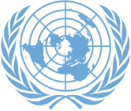I extend my warmest congratulations to you, Mr. President, on your election. I am sure you will guide us well, and we look forward to working with you.
I would also like to congratulate our Secretary-General on the excellent start he has made in answer to the Members’ call for reform. At the same time, I would like to thank the outgoing President for his support in this most important work.
You take office at a critical time, Mr President. There are obviously no easy solutions to the many challenges faced by our Organization. But there is one thing I hope we can all do: be positive and constructive in our approach. With this in mind, I would like to comment briefly on two aspects of current United Nations work that particularly concern us in Brunei Darussalam. The first is peace and security and the second is the Secretary-General’s reform package.
On peace and security, we were pleased to have had the chance to do something to help in the Middle East and in Bosnia and Herzegovina. But we have been dismayed by what has taken place this year, particularly in the Middle East. The current situation is not what we expected. The disruption of the peace process clearly started when Israel decided to build settlements in East Jerusalem. This was bad policy. It was obviously not aimed at helping the peace process. Thus, we would like to see the Israelis do
something positive to repair the damage done.
We have made our position clear for many years. We do not wish to return to the past. It is time for more than words, arguments and resolutions. What we want to see is a peace process that actually proceeds. Somehow, the impasse must be broken, and we greatly appreciate the efforts being made by Jordan, Egypt and the United States to do that. We encourage them and all countries that can
help to continue their efforts, despite the many difficulties.
Concerning the situation in Bosnia, we have also been disappointed by the way certain elements continue to undermine the cause of peace. There are overwhelming signs from the peoples of Bosnia that they welcome the new opportunities they have for a normal life. We are therefore pleased to see the North Atlantic Treaty Organization (NATO) and the United Nations taking strong action to enforce the Dayton Agreement. In our view, such action is definitely being taken on behalf of the Bosnian people. We offer them our full support.
These are just two of the areas where we have seen setbacks to United Nations efforts. We can add many others in Europe, Asia and Africa. What is required everywhere is a determination to resolve all problems peacefully by means of dialogue and negotiation.
Given that spirit, progress is possible. We have seen evidence of it in the great efforts being made in northeast Asia to try to find a solution to the problems on the Korean Peninsula. The difficult situation in Korea could affect all of us in the Asia-Pacific region, so we very much welcome the four-party talks as a way of reducing tension and building confidence. For the same reason, we are happy to support the initiative of the Korean Peninsula Energy Development Organization (KEDO), since it will help remove one serious threat to peace.
On the question of lasting peace, however, we have learned to take nothing for granted.
Some causes of instability have been dramatically highlighted in our own region this year. The recent attacks on our currencies and our financial institutions have shocked us all. They cannot be dismissed as mere ups and downs in the market. It is all very well for commentators to say so, but this is not good enough; it is too simplistic. The effect is like a disease, and it goes for the heart of our economic systems. It seeks out weak points, and developing countries have limited built-in resistance.
Yes, we will survive. Our foundations are sound. But the experience has taught us a lesson. We are realizing how deeply we are all affected by globalization, market forces and interdependence. The playing field is anything but level, and this means that the world organizations to which we belong must be highly effective.
The most important of these is the United Nations, and this brings me to the questions I know the Secretary-General is keen to hear all of us answer at this session: What do we think of his package of proposed reforms? Are they going to help developing nations?
My broad reply would be to say that we think the package is better than the previous attempts to achieve reform. Overall, it firmly addresses the right questions, and, having long supported the idea of United Nations reform, we welcome the proposals.
However, we do have a few comments to offer. We believe they are constructive and hope they will be taken into account by the Secretary-General. As many others have remarked, the proposal seems, basically, to be a management package. It reflects the Secretary-General’s long experience in the Organization. But good management principles represent only one aspect of the reforms we need.
We hope that an acceptable consensus will be reached on matters which especially concern developing nations.
We would like the Secretary-General to make absolutely sure that nothing is going to weaken the things the United Nations does so well for ordinary people. The United Nations work in the field gives the Organization meaning for millions. We must not let our agencies down.
With regard to the proposals concerning peace and security, we hope that the Working Group will soon complete its work on the Security Council. This aspect of reform will certainly strengthen the Organization as a whole.
With regard to development cooperation, we welcome efforts to enhance it. It represents all that is best in international cooperation. It is also directly linked to the important Chapter IX of our Charter, which calls for higher standards of living, full employment and economic and social progress. Without these, there can be no lasting peace and security in the developing world.
Lastly, there is the question of financial viability, perhaps the most important of all if reforms are to be effective. We find the various proposals interesting, but what we are concerned about is whether they provide a long-term solution. We therefore want to give these matters more thought. Naturally, we rely on the Committee to look very carefully indeed into the details of any such scheme.
Having made these points, I should like to conclude by once again offering my congratulations to the Secretary-General on his work. As I said, it is a good start. When the work is finished, we hope that the result will be not only administrative reform but a strong renewal of the deepest principles of our Charter.
We wish the Secretary-General, and you yourself, Mr. President, much success in the year ahead. We assure you that we will do all we can to assist fellow Members in responding well to what the Secretary-General has rightly described as unprecedented demands and opportunities.


